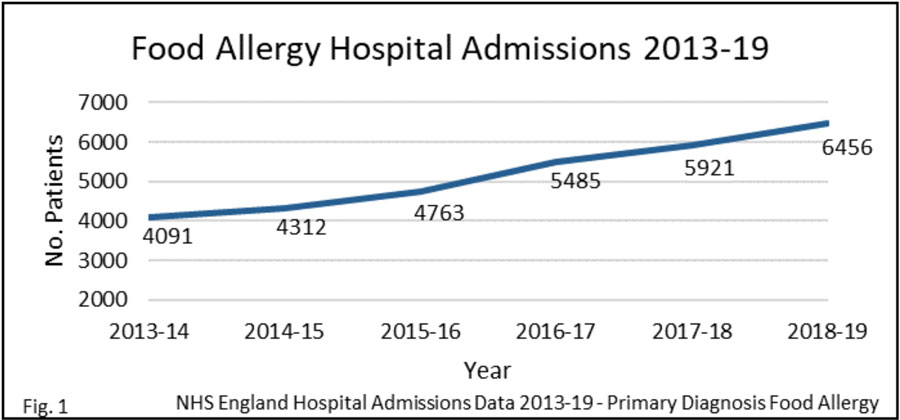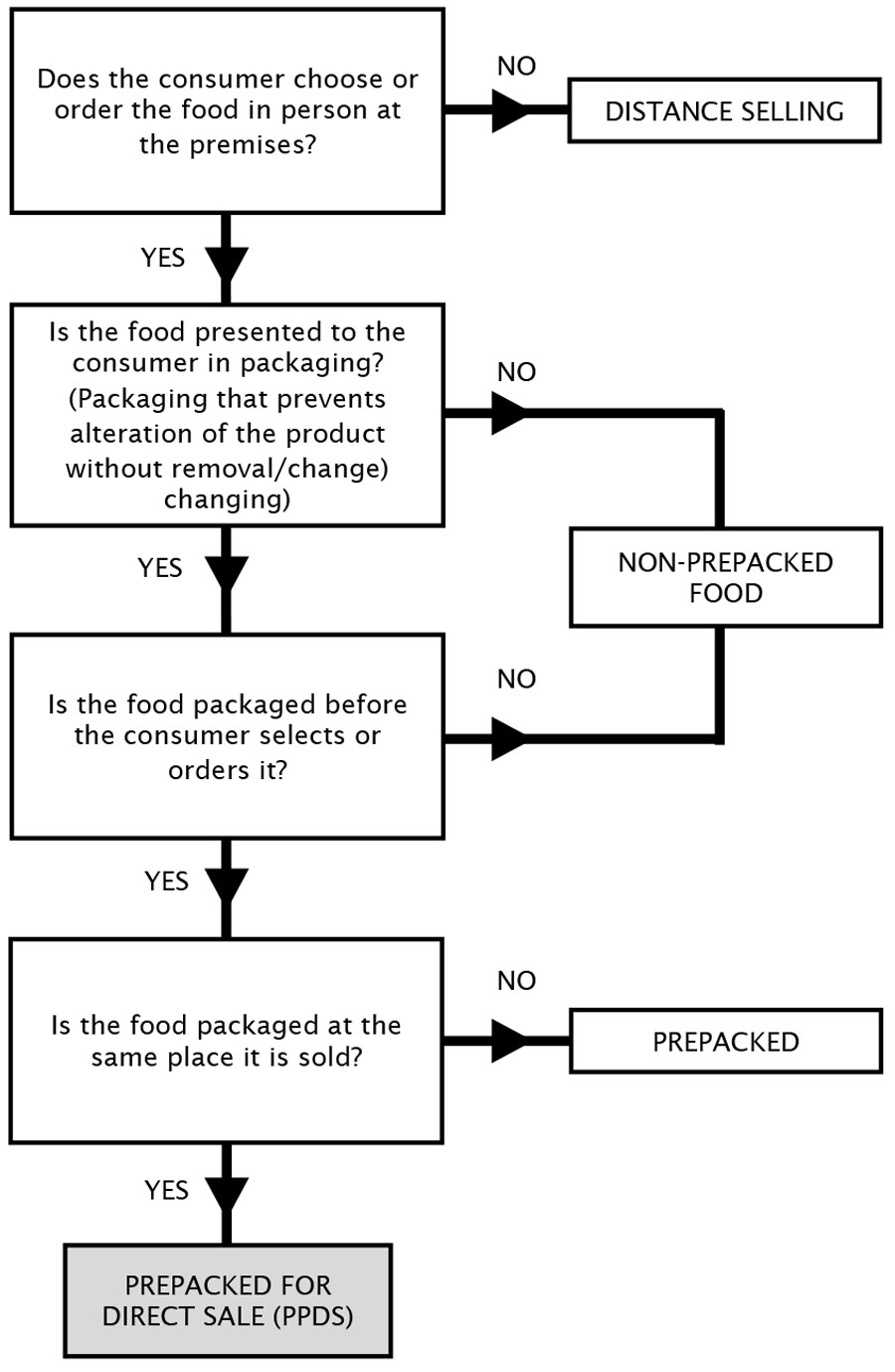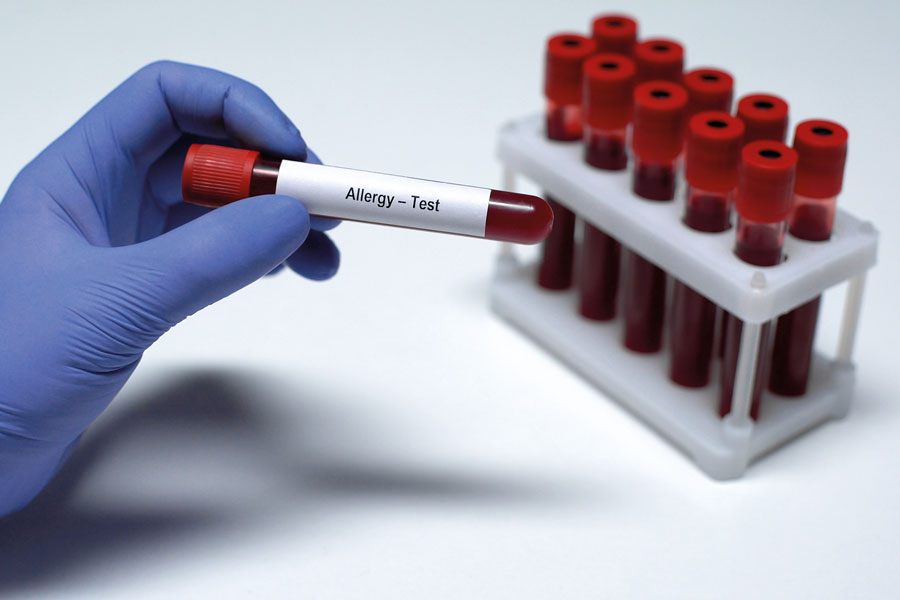The tragic death of 15-year-old Natasha Ednan-Laperouse in 2016 gave the food industry a clear message that changes needed to be made with regard to the labelling of allergens. Miss Ednan-Laperouse’s death was caused by an allergic reaction to a store-bought baguette which contained unlabelled sesame. This heart-breaking event instigated work towards new legislation on allergen labelling for prepacked food for direct sale (PPDS) and ‘Natasha’s Law’ as it is now known, was the outcome. It is nearly two years since the legislation was laid before Parliament and it will come into force on the 1 October 2021. As the deadline looms, it is crucial to understand what the changes are and why they are so important.
Why do we need Natasha’s Law?
Daily life for the estimated two million individuals in the UK living with food allergies is not an easy one. Food allergies turn everyday events such as food shopping, snacking, eating at restaurants and buying convenience food into potentially life-threatening tasks. Under the ‘Food Information for Consumers Regulations 1169/2011’, the UK currently recognises 14 foods as allergens for labelling purposes: Celery, Cereals containing gluten (such as barley and oats), Crustaceans (such as prawns, crabs, and lobsters), eggs, fish, lupin, milk, molluscs (such as mussels and oysters), mustard, peanuts, sesame, soybeans, sulphur dioxide and sulphites, and tree nuts (such as almonds, hazelnuts, walnuts, brazil nuts, cashews, pecans, pistachios, and macadamia nuts).
However, many people are allergic to foods not recognised by regulation. There is no cure for food allergies and so individuals must avoid the allergen. The key to this avoidance is information which needs to be accurate, clear and readily available.
The coroner’s report of the events surrounding Natasha’s death emphasised some key points. Firstly, the allergen (sesame) was not visibly present in the product but baked into the bread dough. Secondly, as the report stated, “there was no specific allergen information on the baguette packaging … and Natasha was reassured by that.” (S. Cummings, ‘Natasha-Laperouse-2018-0279 – Coroner’s REPORT TO PREVENT FUTURE DEATHS’. Courts and Tribunals Judiciary, Aug. 10, 2018. [Online]. Available: chrome-extension://oemmndcbldboiebfnladdacbdfmadadm/https://www.judiciary.uk/wp-content/uploads/2018/10/Natasha-LAPEROUSE-2018-0279.pdf). The food item had been prepared and packaged in store. It was therefore exempt from the legal requirement to have full ingredients and allergen information labelled on the product. Add to this the presumably busy environment in the airport store where it was sold and allergen information only being available through speaking with staff or on an information sheet separate from the item.
In addition, the hospitalisation admissions due to food allergy shows that events continue to increase each year, further emphasising the need for preventive measures. It becomes easy to agree with the coroner, Dr Cummins’, statement: “In my opinion there is a risk that future deaths could occur unless action is taken.” (see above referenced report).

What is Natasha’s Law?
Food has always been essential and has appeared throughout history in legislation, some laws protecting producers and other consumers. In medieval times laws existed to regulate the price, weight and quality of bread and beer. The introduction of a “baker’s dozen” (13) may have been meant as a way for bakeries to avoid “shorting” customers and invoking penalties. Today, the Food Safety Act of 1990 provides the framework for all food legislation in England, Scotland and Wales. It outlines three main responsibilities of food businesses (E. Participation, ‘Food Safety Act 1990’. Statute Law Database. [Online]. Available: https://www.legislation.gov.uk/ukpga/1990/16/contents):
• Not to include anything in food, remove anything from food or treat food in any way which means it would be damaging to the health of people eating it.
• Food served or sold is of the nature, substance and quality which consumers would expect.
• Food is labelled, advertised or presented in a way that is not misleading or false.
The Food Information for Consumers Regulations 1169/2011 significantly impact restaurants as they were now required to provide allergen information for non-prepacked food. This was implemented in the UK by the Food Information Regulations and came into force on the 14 July 2014.
Natasha’s Law is part of this continuing evolution of legislation. These laws and good practice guides ensure food safety for individuals who have food allergies. Natasha’s Law specifically amends Food Information Regulations 2014, to ensure PPDS food packaging will include three mandatory items: 1) The name of the food, 2) A full Ingredient’s list ordered from largest to smallest quantity in the product (Quantitative Ingredient Declaration - QUID), and 3) The allergenic ingredients within the food must be emphasised (e.g. bold type) every time they appear in the ingredients list.
This change will ensure that critical safety information about the product, will literally be in the palm of your hand.
Does this affect my business?
If your food business currently provides food that is PPDS, you will be affected. You must be compliant with the new legislation by the 1 October 2021. If you are unsure if any of your products qualify as PPDS foods, here is what to look for.
A PPDS food is an item of food that is 1) Packaged at the same place as it is sold or offered to consumers, and 2) The packaging process is completed before the food is ordered or selected. Examples of PPDS food would include sandwiches made and packaged before a customer selects or orders them, sausages which have been packaged at a butcher ready for sale, or chilled bake-at-home pizzas pre-packaged for sale. Foods pre-prepared in institutions such as schools and care homes are not exempt from the requirements. Typical businesses which may be affected are sandwich shops, cafés, bakeries and catering companies.
It is equally important to understand which products are not affected. If the products provided are ordered by customers not on the premises while ordering, such as in the case of many take-away restaurants, it would be considered “distance selling” and those restaurants are exempt.
But whether a product is classified as PPDS is not always straight-forward. If, for instance, you need to open or change the packaging of a partly packaged food product in any way, it is still considered PPDS. The decision tree below is a useful tool for classification of a product. An interactive version of the below decision tree is available on the Food Standards Agency’s website (‘Allergen and ingredients food labelling decision tool’, Food Standards Agency. https://www.food.gov.uk/allergen-ingredients-food-labelling-decision-tool).

In summary, Natasha’s Law will now require all PPDS foods to be labelled with:
• The product name
• An Ingredients list (QUID)
• All allergens emphasised in the ingredient list
The changes must be implemented by the 1 October 2021. The Food Standard Agency has produced several high-quality technical documents, guides, and training materials to support businesses through the transition period. These documents are freely available through their website (www.food.gov.uk). As the food industry takes another step along the road towards safer food for all individuals, it is a testament to the sector’s ability to continually adapt and improve even during difficult times.

